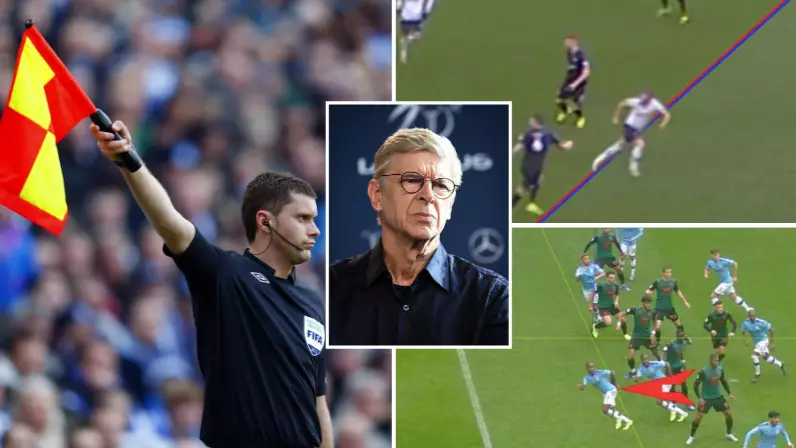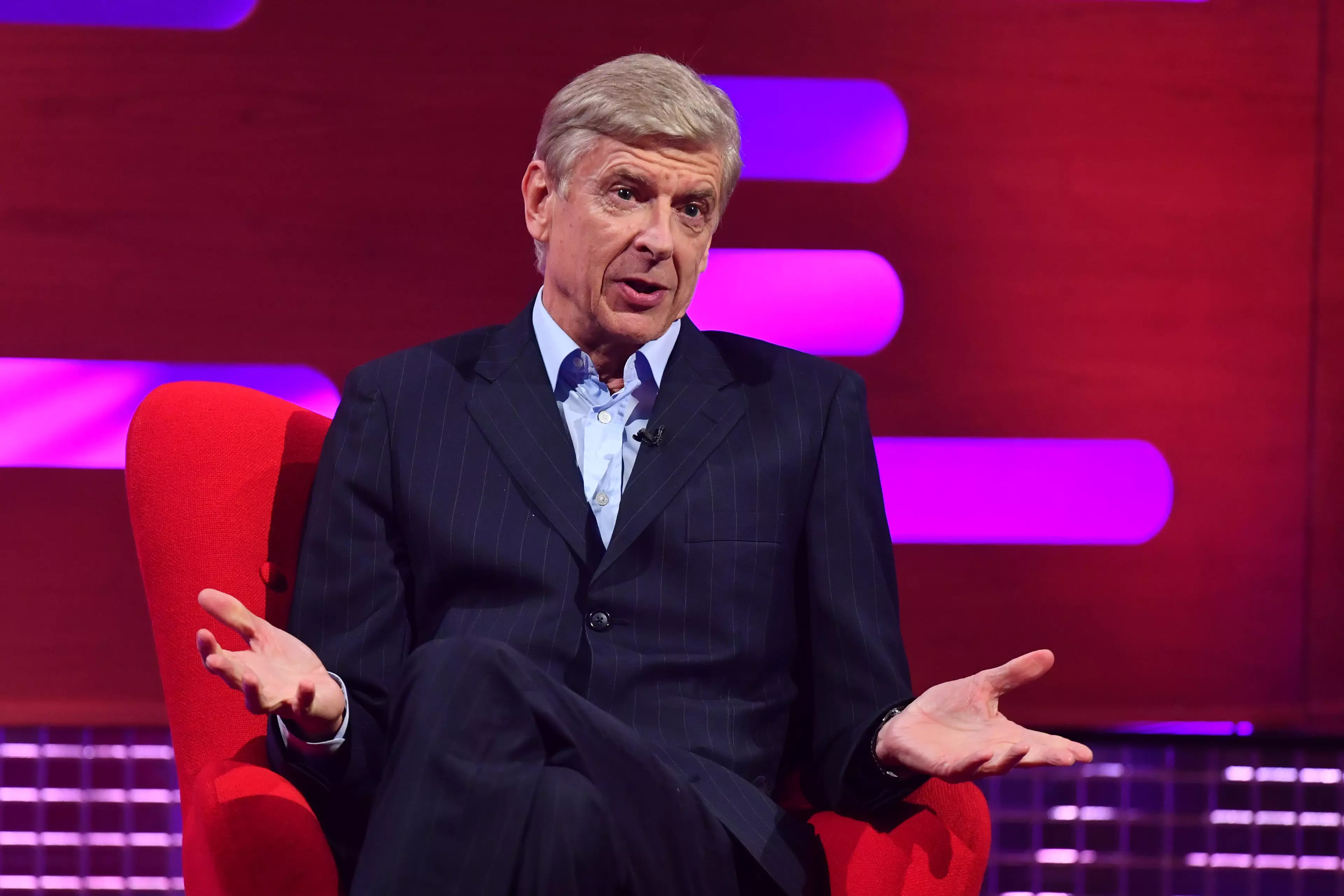
Arsene Wenger is hopeful his that offside decisions will be made by "robo-linesman" at next year's World Cup.
Former Arsenal boss Wenger is FIFA's chief of global football development and is looking to introduce a number of changes that he feels will improve the game.
In addition to advocating a monumental overhaul to the footballing calendar, he has been pushing for offside alterations for quite some time and now the revamp is gathering pace it seems.

After a slew of controversial decisions whereby armpits and toenails have been deemed offside, Wenger wants to make it so that the attacker benefits.
Advert
Under his law, the attacking player will be onside as long as any body part with which they can use to score is level with or behind the last defender.
But another part of the proposal is to have cameras alerting linesmen in what is being called "semi-automated "offside" calls.
Explaining how the process would work, Wenger told Fifa's Living Football vodcast: "At the moment we have situations where the players' positions have lines drawn to see if they are offside or not.
Advert
"The average time we have to wait for a decision is around 70 seconds, sometimes 1 min 20 secs, sometimes a little bit longer when the situation is very difficult to appreciate.
"But with this system, there is an automatic signal to the linesman, via a watch he wears with a red light to tell him if it is offside or not.
"The semi-automated goes first to the VAR who signals it to the linesman.
"I'm pushing very hard to have the automated offsides, which means straight away the signal goes to the linesman and I think it will be ready for 2022.
Advert
"We see many celebrations are cancelled after that for marginal situations and that's why I believe it is a very important step."
In a twitter thread, ESPN's Dale Johnson highlighted Raheem Sterling's heel being flagged offside as a decision that would be ruled onside using Wenger's law because his heel was level with John McGinn.
Wenger, meanwhile, used England striker Ellen White's disallowed goal against the United States in the Women's World Cup semi-final as an example.

He says his changes would see less offsides per game in the Premier League and make the game "more spectacular, quicker and more enjoyable to watch and play".
Advert
The Frenchman added: "VAR has changed football. The Laws say that the benefit of the doubt should go to the striker.
"Previously if the striker was a tiny fraction in front, the goal would be allowed.
"But with VAR the benefit of doubt disappeared because the precision of VAR always goes against the striker. We think it is anti-emotion.
"Our proposal is that as long as any part of your body is level with the defender you are not offside, so the attacker gains a whole stride, approximately.
Advert
"Of course we have to analyse the impact on the tactical behaviour of the defenders - whether they might drop deeper or be more aggressive.
"But we know on average there are four offsides in the Premier League per game. With this change, we would have only two.
"The game would create more dangerous situations and goalscoring situations.
"I've gone to consult with managers, defenders, midfielders and strikers from all over the world.
"The defenders were against it - what a surprise. And the strikers all for it."
Wenger's proposal is currently being trialled in China, having been given the green light by FIFA president Gianni Infantino.
Featured Image Credit:Topics: 2022 World Cup, Football, FIFA, Arsene Wenger
